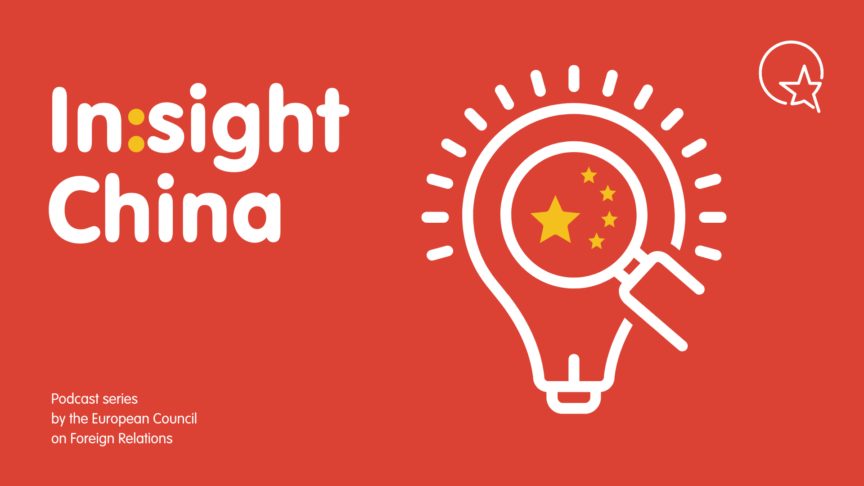
In:Sight China with Yan Xuetong
Mark Leonard and Alicja Bachulska welcome Yan Xuetong to discuss China’s role in the new global order

Mark Leonard and Alicja Bachulska welcome Yan Xuetong to discuss China’s role in the new global order
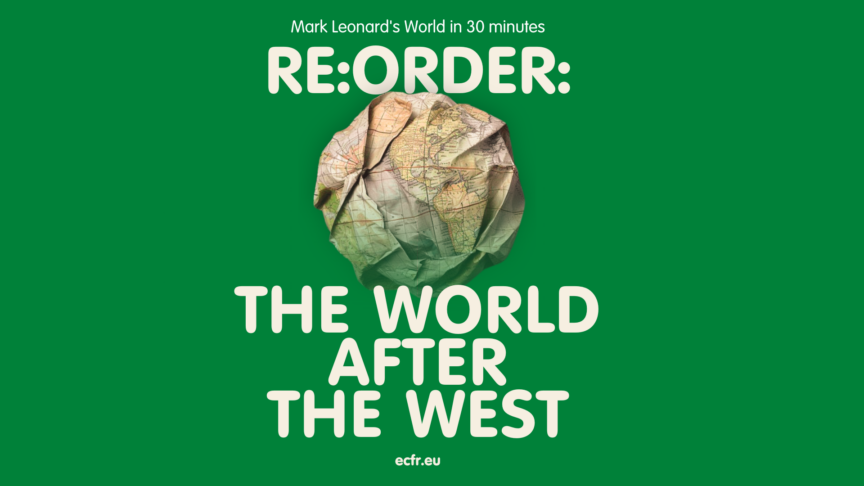
In recent years, China has overtaken the United States as the largest trading partner of the Association for Southeast Asian Nations (ASEAN). Not only has…

Mark Leonard welcomes Alicja Bachulska and Janka Oertel to discuss their latest book, “The Idea of China.”
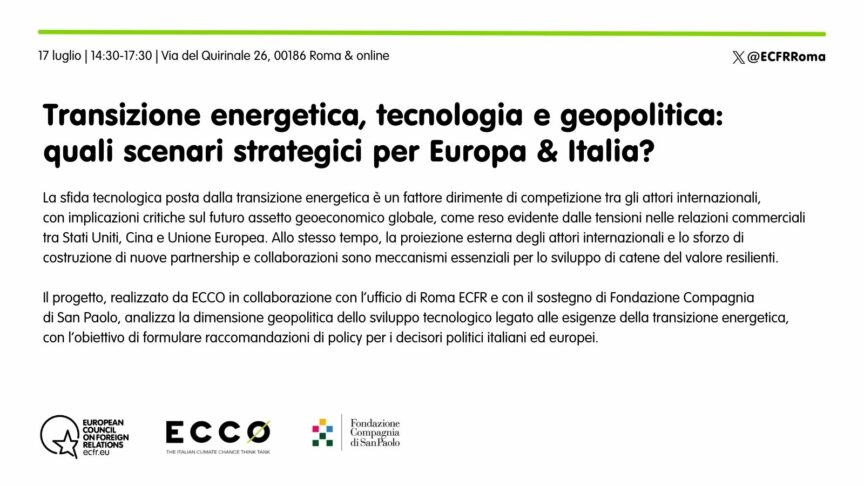
La sfida tecnologica posta dalla transizione energetica è un fattore dirimente di competizione tra gli attori internazionali, con implicazioni critiche sul futuro assetto geoeconomico globale, come reso evidente dalle tensioni nelle relazioni commerciali tra Stati Uniti, Cina e Unione Europea. Allo stesso tempo, la proiezione esterna degli attori internazionali e lo sforzo di costruzione di nuove partnership e collaborazioni sono meccanismi essenziali per lo sviluppo di catene del valore resilienti

China’s ideas could become the country’s next big export. The Idea of China examines Chinese thinking about global order, AI, demographic change, and more – and considers how these ideas could influence the world
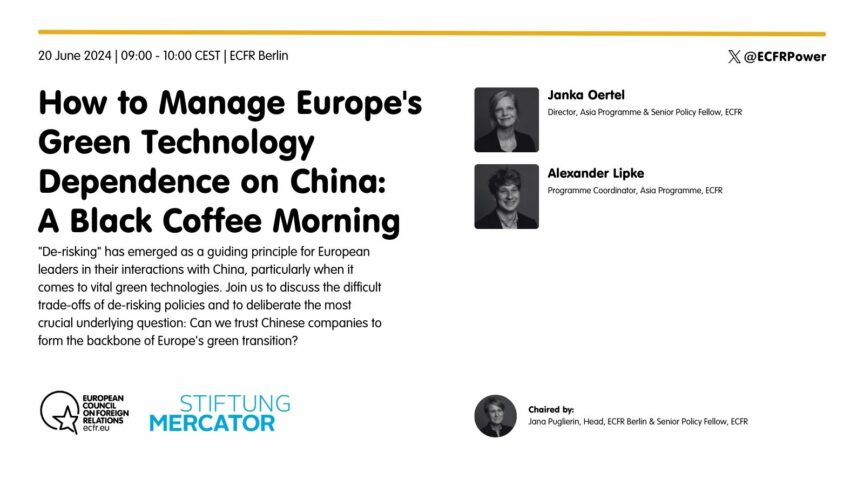
As the global landscape shifts towards strategic rivalry between China and the advanced industrial economies of the West, Europe finds itself at a crossroads, needing…

Mark Leonard welcomes Angela Zhang to discuss China’s Big Tech regulation

Mark Leonard welcomes Angela Zhang to discuss China’s big tech regulation

China is strengthening its ties to the Gulf in areas well beyond the energy sector. The EU clearly has stakes in the region, but it should not try to directly counter China’s influence. It should instead build its own Gulf partnerships
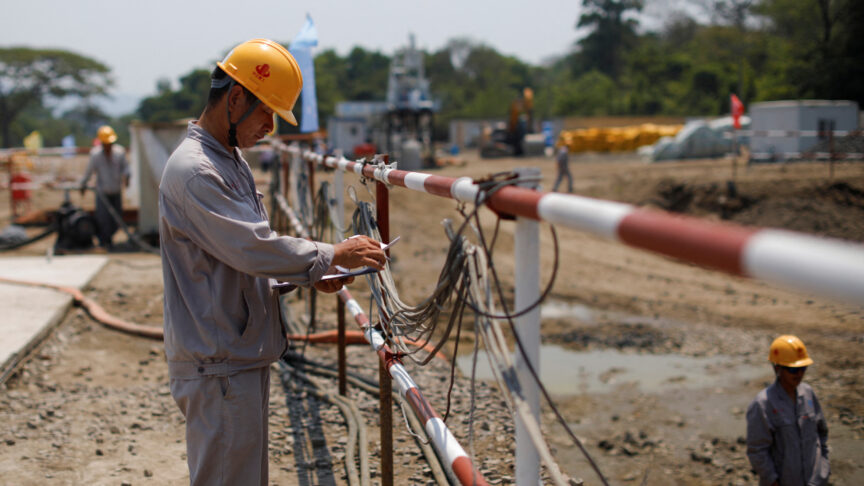
As Beijing’s investment approach to Latin America focuses on industries of strategic importance, the EU and US will need to contend with growing Chinese competition

China’s ideas could become the country’s next big export. The Idea of China examines Chinese thinking about global order, AI, demographic change, and more – and considers how these ideas could influence the world

China is strengthening its ties to the Gulf in areas well beyond the energy sector. The EU clearly has stakes in the region, but it should not try to directly counter China’s influence. It should instead build its own Gulf partnerships
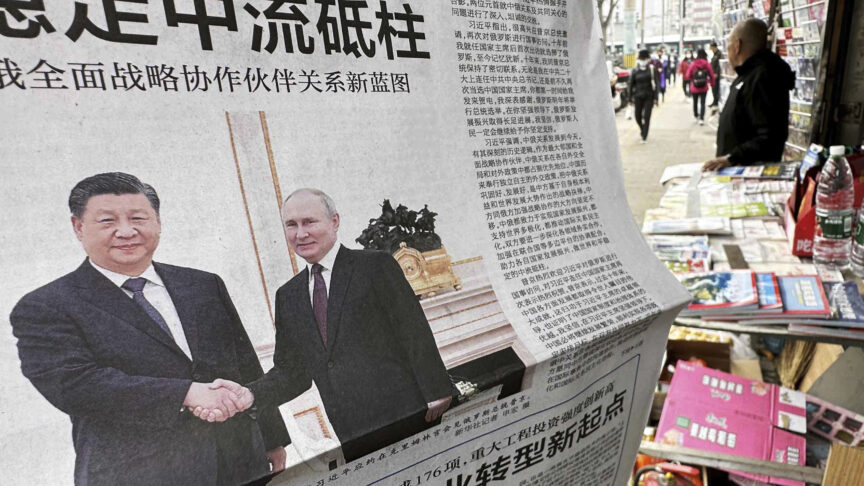
Chinese thinkers are drawing four key lessons from Russia’s war on Ukraine, informing their views on: America, Russia, Taiwan, and economic interdependence with the West
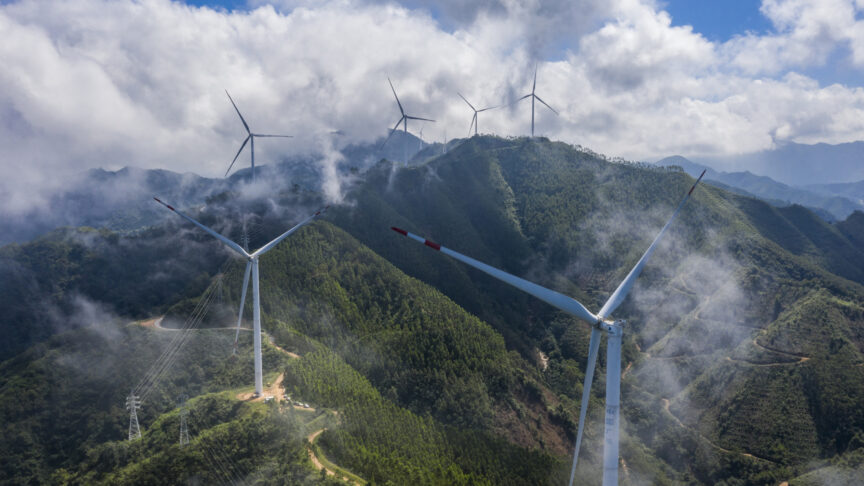
Europeans risk over-dependence on China for the green technologies needed to build the low-carbon economy of the future. They should take steps to reduce their exposure – while recognising they will have to work with Chinese suppliers in some instances
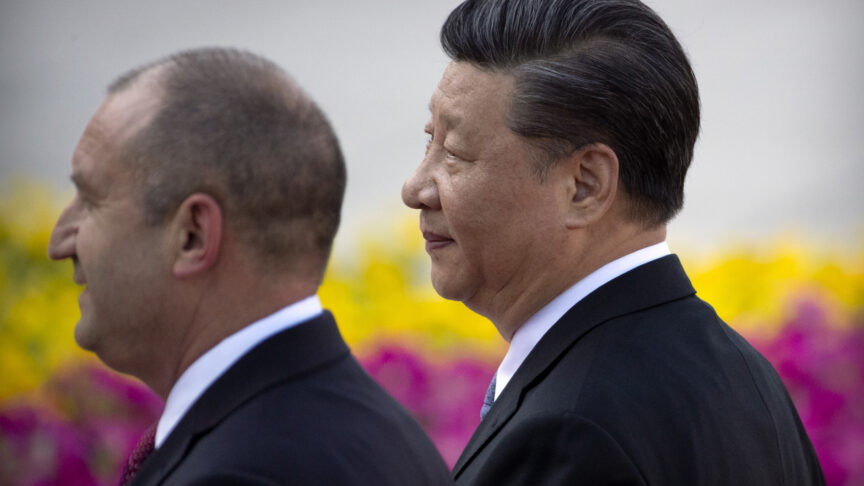
China is expanding its presence in Bulgaria through a strategy of engagement with state and non-state actors. This has concerning implications in areas such as technology transfer, critical infrastructure, and public procurement
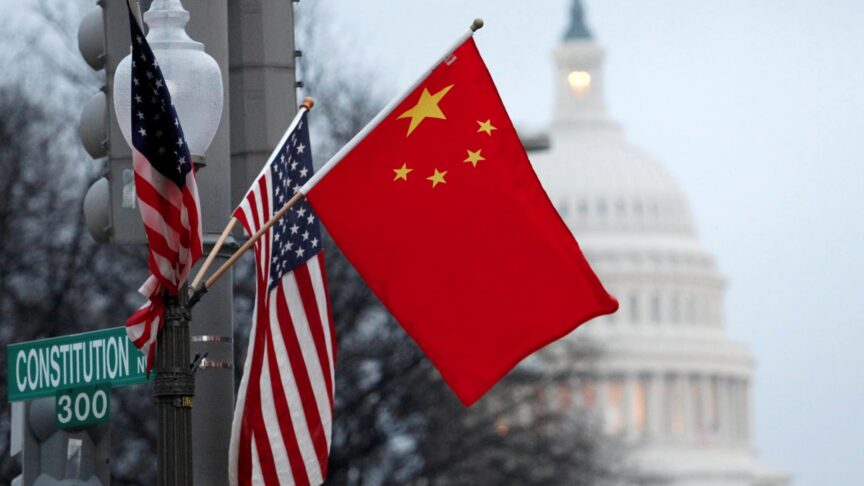
A majority of European citizens believe a new cold war with both China and Russia is under way – but they mostly do not think that their own country is involved

ECFR’s policy experts examine what the Taliban takeover means for countries and regions around the world: Europe, the US, the Middle East, Russia, China, Iran, Turkey, and the Sahel
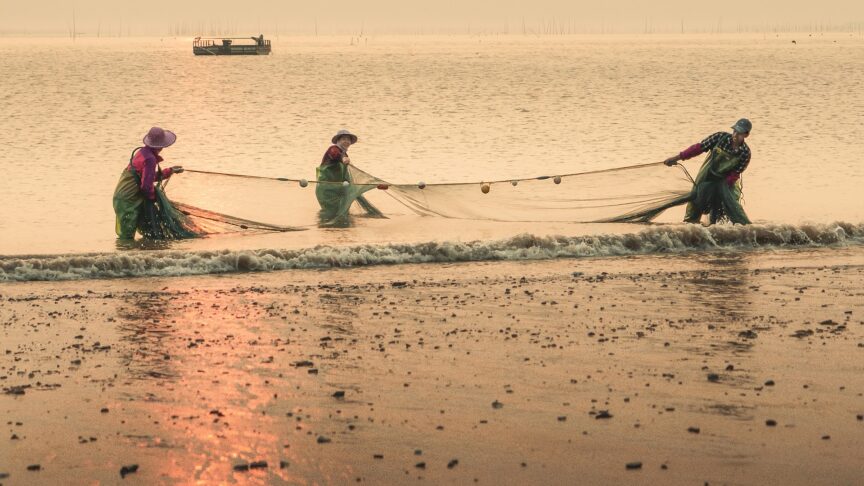
Beijing instrumentalises its fishing fleet for geopolitical gain, as evidenced by its policy on the South China Sea. Europe cannot be a bystander on the issue

The EU has the ambition and potential to become a sovereign digital power, but it lacks an all-encompassing strategy for the sector, in which individual governments are still the key players
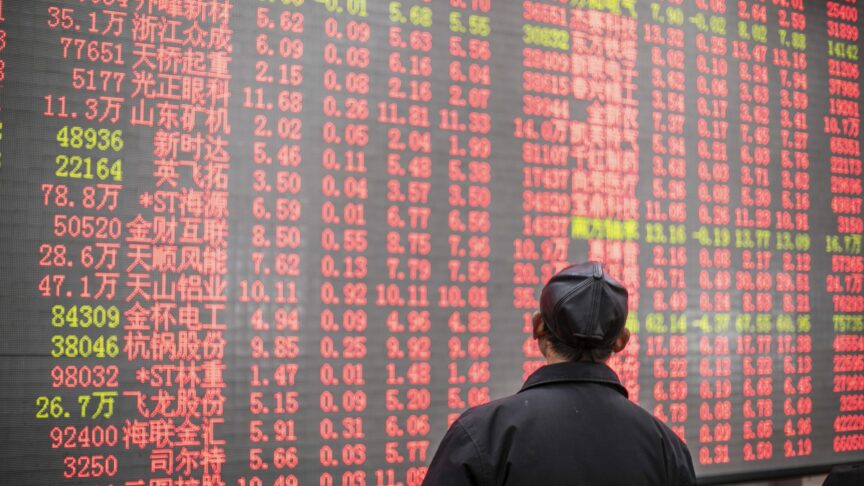
The EU urgently needs to incorporate the concept and reality of the ‘protected home market advantage’ into its thinking on China

As Beijing’s investment approach to Latin America focuses on industries of strategic importance, the EU and US will need to contend with growing Chinese competition

The EU’s plans to upgrade the Middle Corridor trade route may boost Russian and Chinese connectivity with central Asia. But for Europeans, the long-term economic and strategic benefits of going ahead with the development far outweigh these risks
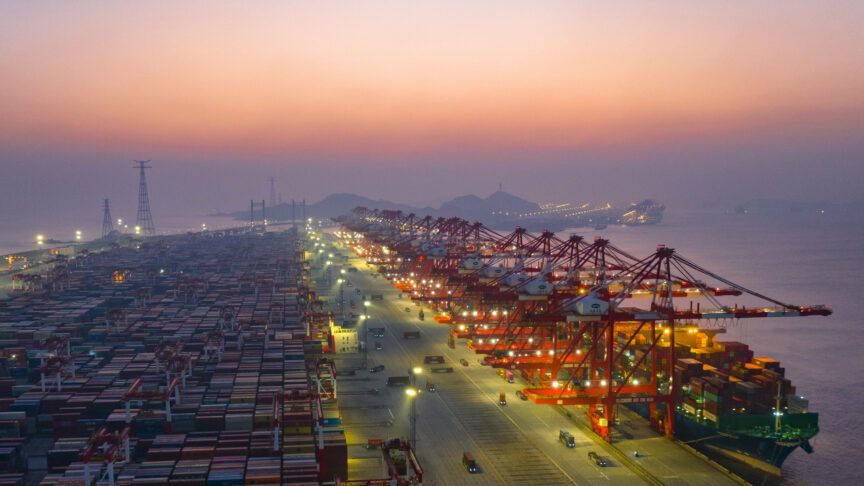
Two decades ago, China’s reformist economists walked the halls of power and dictated policy. Now, they have been sidelined in favour of a new priority: national security. What happened?
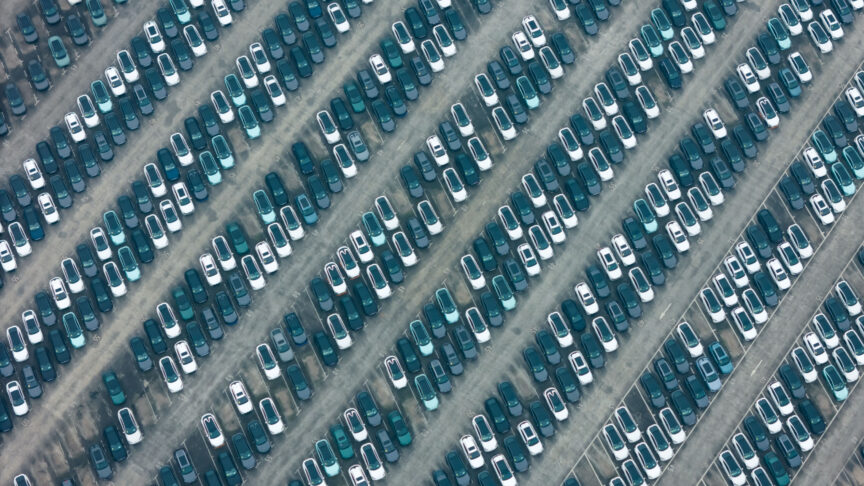
The security challenge posed by Chinese electric vehicles is in many ways greater – and trickier to solve – than that of 5G networks. With such cars entering the European market at growing speed, policymakers need to move swiftly
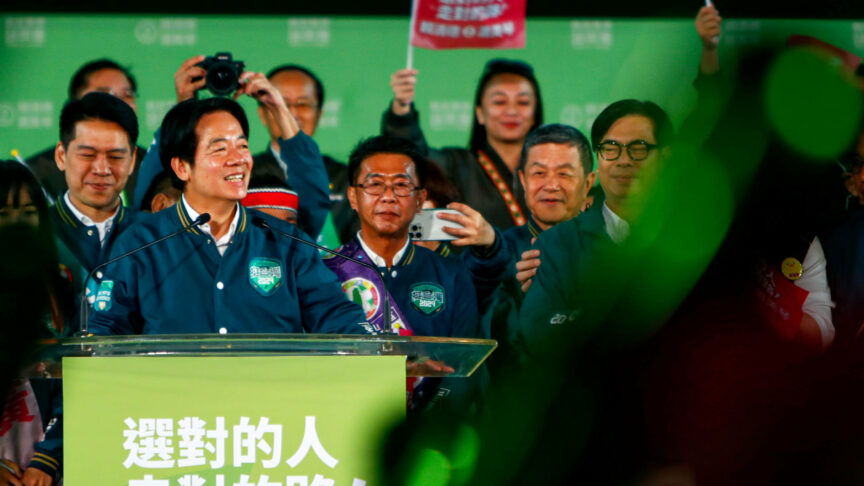
Tensions over Taiwan are likely to rise in the aftermath of this weekend’s election, regardless of who wins. The next president will seek closer ties with Europe, which will necessitate a more coherent and unified policy
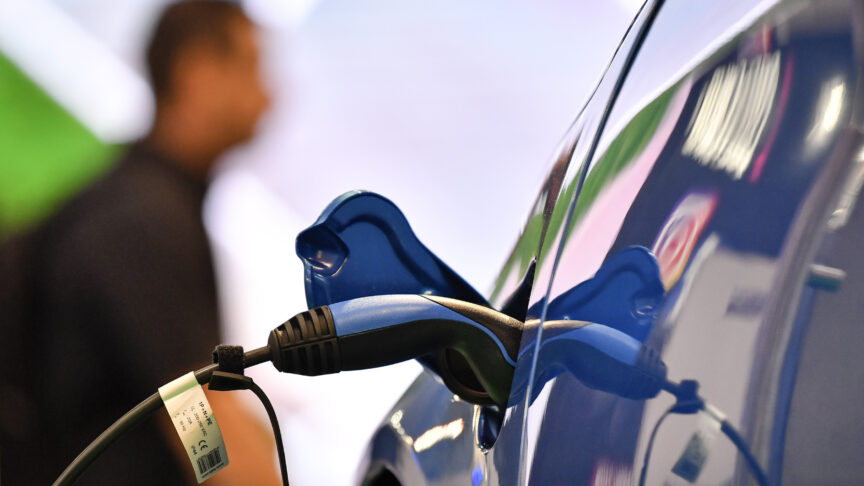
The electric vehicle industry demonstrates the challenges of de-risking in practice. The EU needs more than tariffs if it wants to prevent a looming over-dependence on Chinese electric vehicles without strangling its own green ambitions
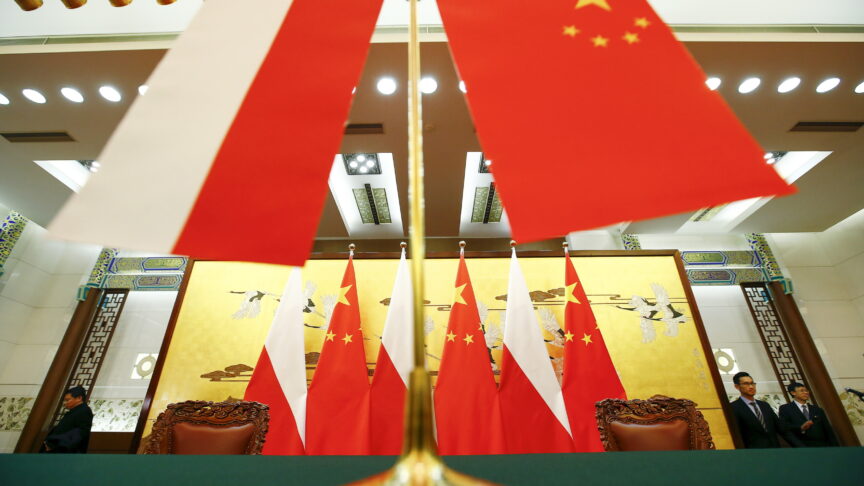
Poland needs to rethink its approach to China. The new government provides an opportunity for Warsaw to work with European partners to develop a China strategy that strengthens both Poland and the EU
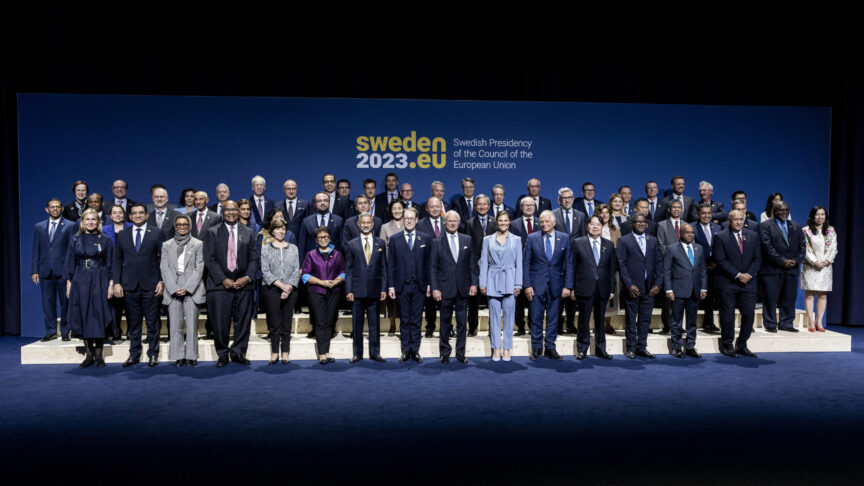
As ties between Europe and China continue to cool, European leaders should refocus their energies on strengthening relations elsewhere in the Indo-Pacific
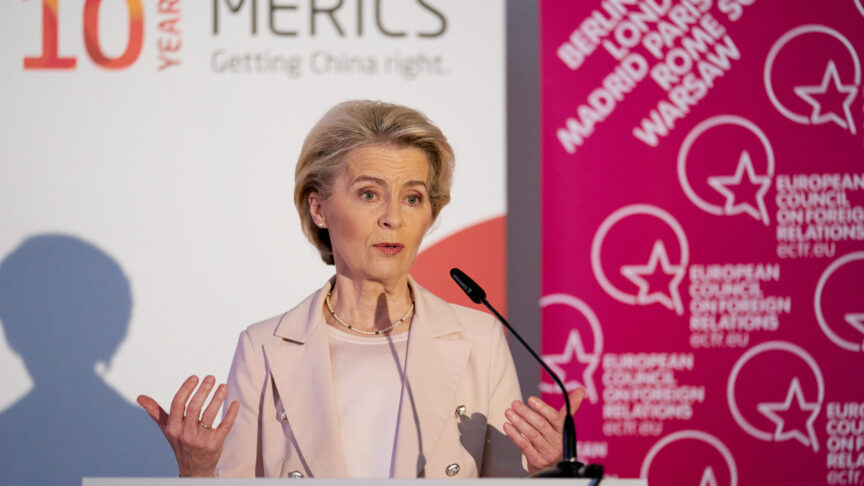
Speech by EU Commission President von der Leyen at the European China Conference 2023, organised by the European Council on Foreign Relations and the Mercator Institute for China Studies
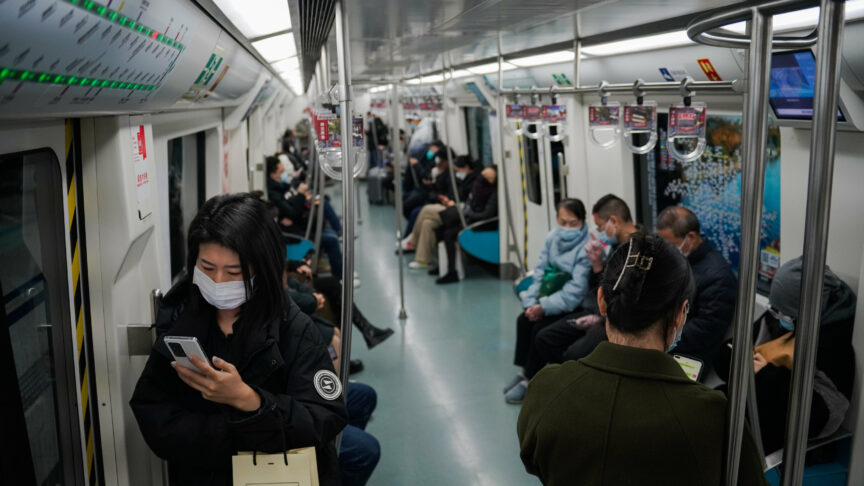
China’s zero-covid fallout may represent the start of a new chapter for China – one in which it becomes an increasingly unpredictable force in the world
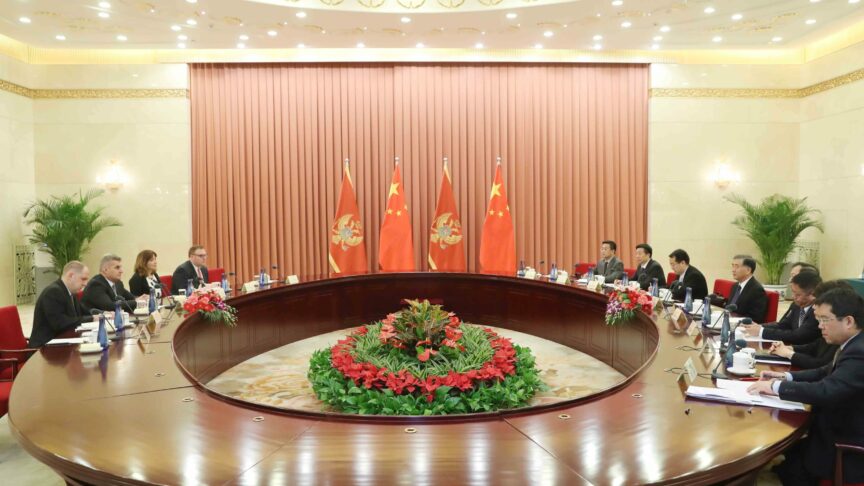
China is building up its influence in the Western Balkans through projects focused on everything from energy and infrastructure to culture, education, and media. If the European Union is to achieve its geopolitical goals in the region, it will need to understand the nature of competition with Beijing in all these areas

Mark Leonard and Alicja Bachulska welcome Yan Xuetong to discuss China’s role in the new global order

In recent years, China has overtaken the United States as the largest trading partner of the Association for Southeast Asian Nations (ASEAN). Not only has…

Mark Leonard welcomes Alicja Bachulska and Janka Oertel to discuss their latest book, “The Idea of China.”

Mark Leonard welcomes Angela Zhang to discuss China’s Big Tech regulation

Mark Leonard welcomes Angela Zhang to discuss China’s big tech regulation
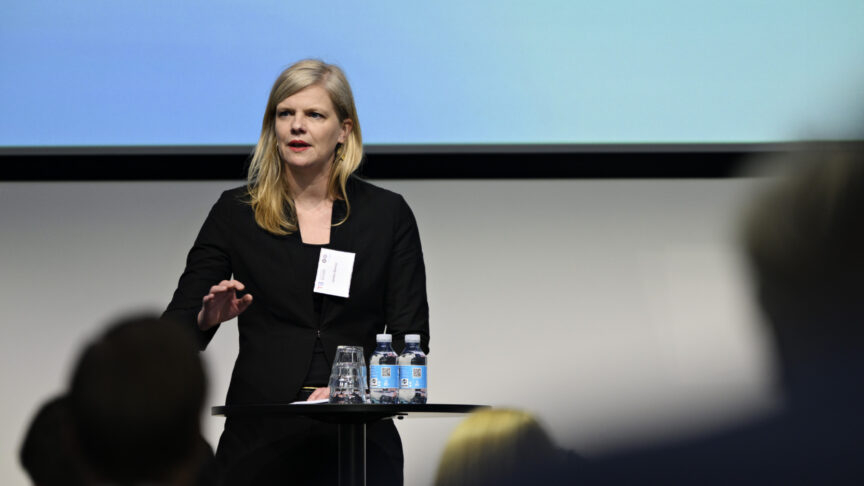
Mark Leonard welcomes Janka Oertel to discuss her new book “End of the China illusion” and the West’s biggest misconceptions about China

Mark Leonard welcomes Duan Jiuzhou to talk about China’s role in the MENA region

Janka Oertel welcome Wang Dong, to talk about the current tensions between Washington and Beijing
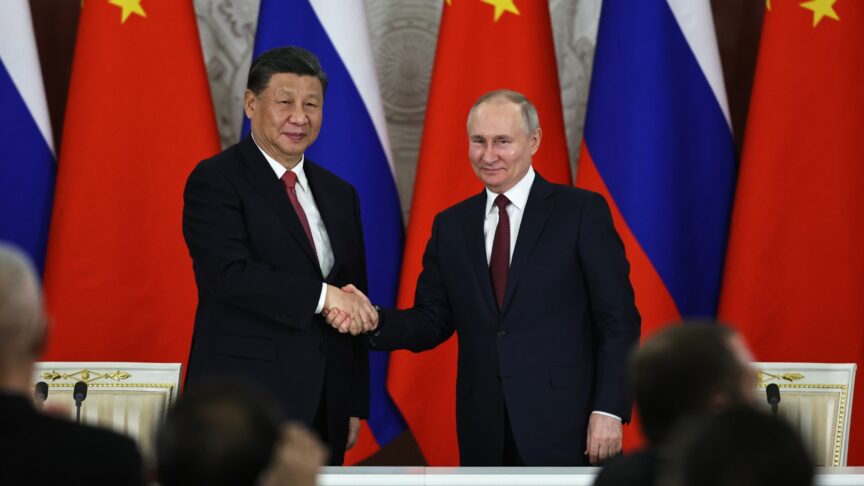
Mark Leonard welcomes Janka Oertel and Alicja Bachulska, to discuss China-Russia relations
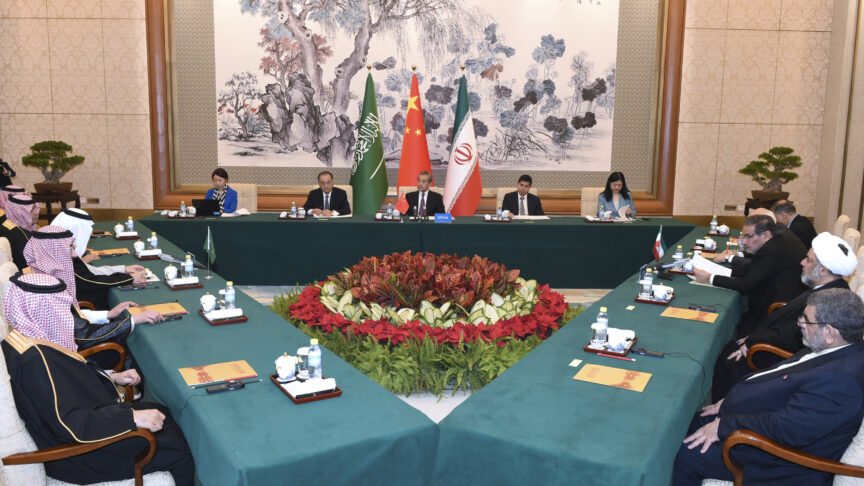
Mark Leonard welcomes Julien Barnes-Dacey, Cinzia Bianco and Andrew Small, to talk about the new Saudi – Iran deal

La sfida tecnologica posta dalla transizione energetica è un fattore dirimente di competizione tra gli attori internazionali, con implicazioni critiche sul futuro assetto geoeconomico globale, come reso evidente dalle tensioni nelle relazioni commerciali tra Stati Uniti, Cina e Unione Europea. Allo stesso tempo, la proiezione esterna degli attori internazionali e lo sforzo di costruzione di nuove partnership e collaborazioni sono meccanismi essenziali per lo sviluppo di catene del valore resilienti

As the global landscape shifts towards strategic rivalry between China and the advanced industrial economies of the West, Europe finds itself at a crossroads, needing…
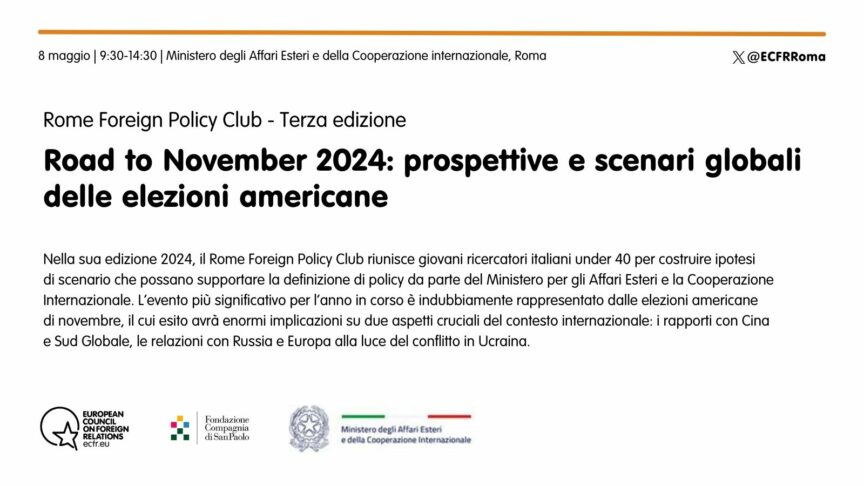
Nella sua edizione 2024, il Rome Foreign Policy Club riunisce giovani ricercatori italiani under 40 per costruire ipotesi di scenario che possano supportare la definizione di policy da parte del Ministero per gli Affari Esteri e la Cooperazione Internazionale. L’evento più significativo per l’anno in corso è indubbiamente rappresentato dalle elezioni americane di novembre il cui esito avrà enormi implicazioni su due aspetti cruciali del contesto internazionale: i rapporti con Cina e Sud Globale e le relazioni con Mosca alla luce del conflitto in Ucraina
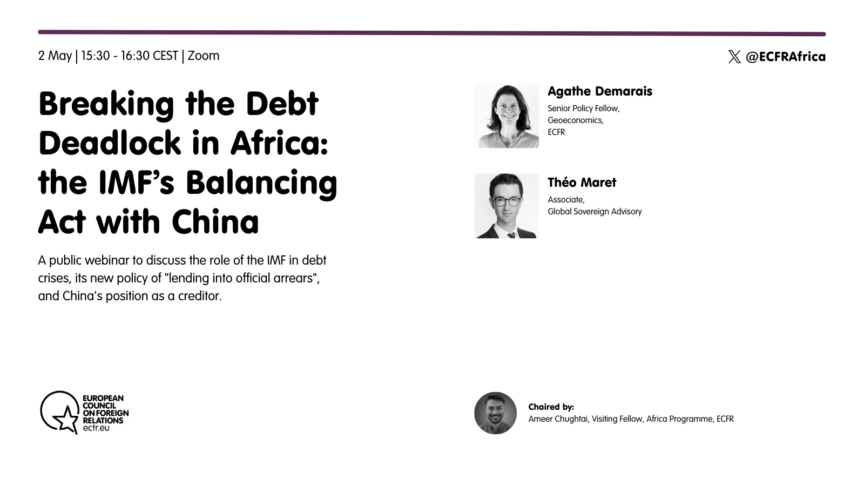
The economic shock after COVID-19 plunged many African economies into debt trouble. Yet, four years later, the current system for restructuring debts – the G20 Common…
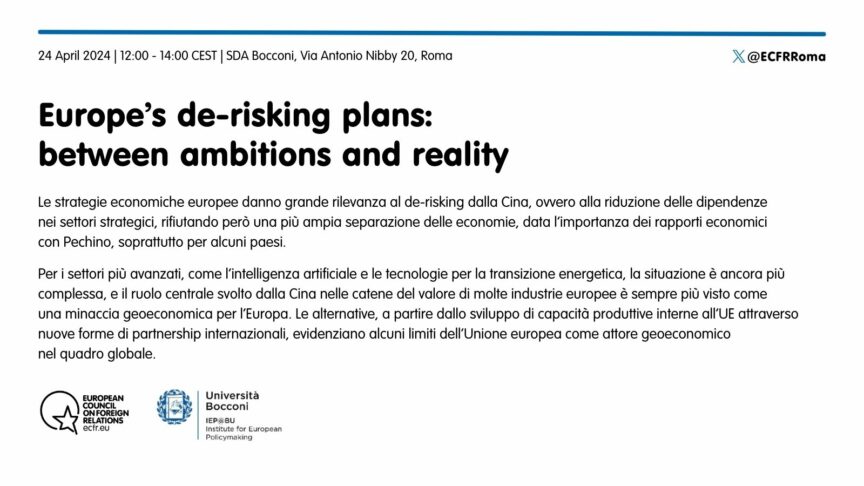
Quarto appuntamento di una serie di working lunch realizzati congiuntamente da ECFR Roma, SDA Bocconi e l’Institute for European Policymaking @ Bocconi University
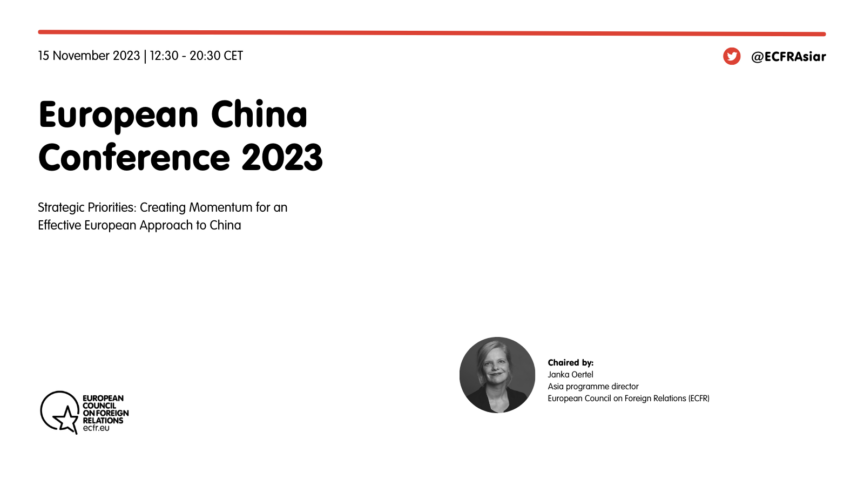
The EU China conference brings together high-level policymakers and experts from all over Europe to discuss how to respond to the multitude of challenges posed by the developments in China’s economic, foreign and security policy
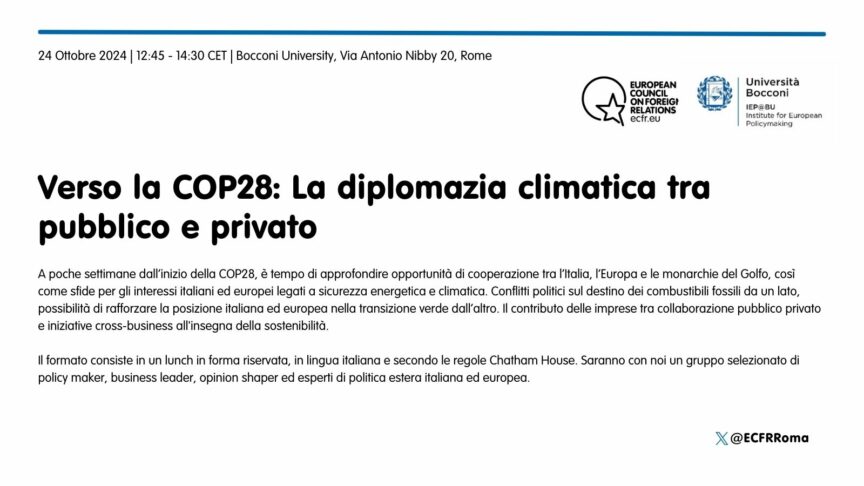
A poche settimane dall’inizio della COP28, è tempo di approfondire opportunità di cooperazione tra l’Italia, l’Europa e le monarchie del Golfo, così come sfide per gli interessi italiani ed europei legati a sicurezza energetica e climatica. Conflitti politici sul destino dei combustibili fossili da un lato, possibilità di rafforzare la posizione italiana ed europea nella transizione verde dall’altro. Il contributo delle imprese tra collaborazione pubblico-privato e iniziative cross-business all’insegna della sostenibilità

Italy’s leaders are confronting a decision about whether to withdraw from a memorandum of understanding with China on the Belt and Road Initiative (BRI) before…
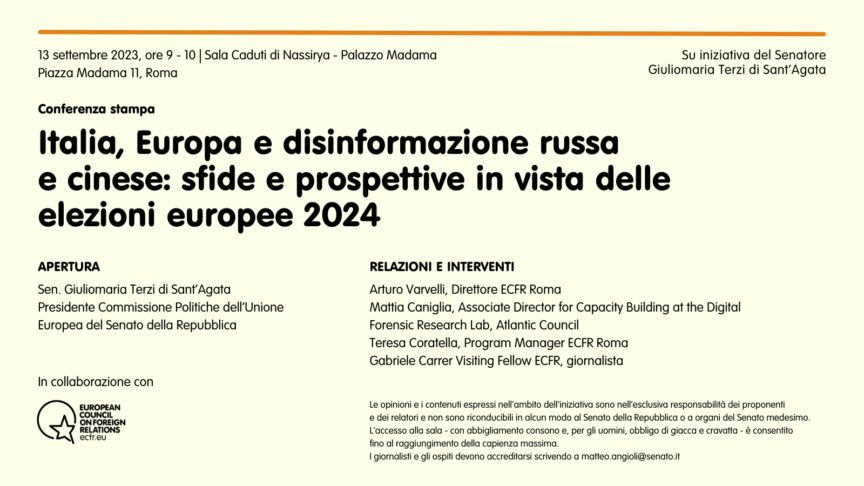
In vista delle elezioni europee del 2024, la disinformazione si conferma una delle sfide che Italia ed Europa devono affrontare con grande urgenza. Per…
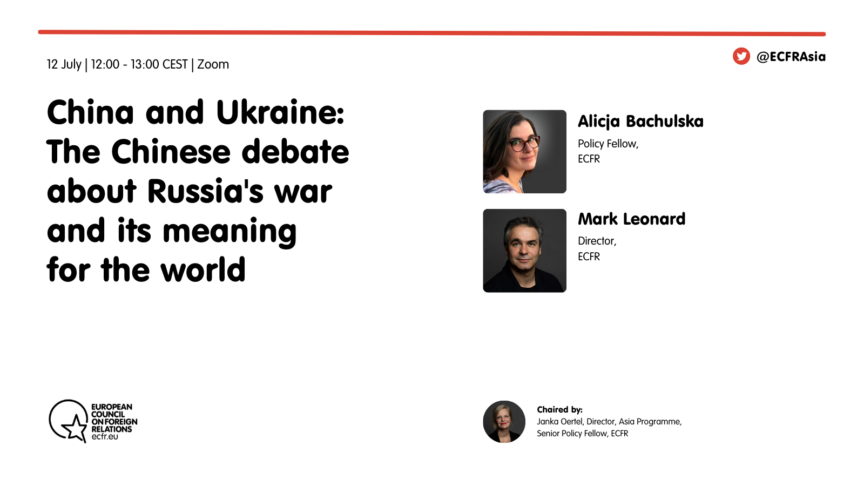
How has Russia’s invasion of Ukraine in February 2022—and the conduct of the war since then—changed China’s support for Russia and its wider outlook on the world? What lessons can Europe learn from China’s relationship to Russia?